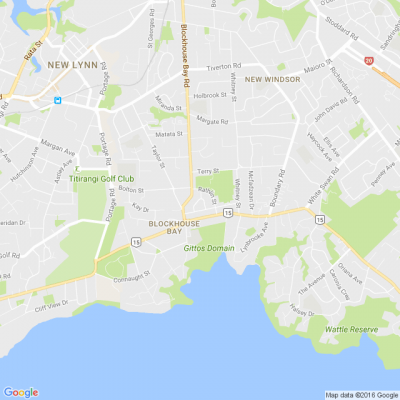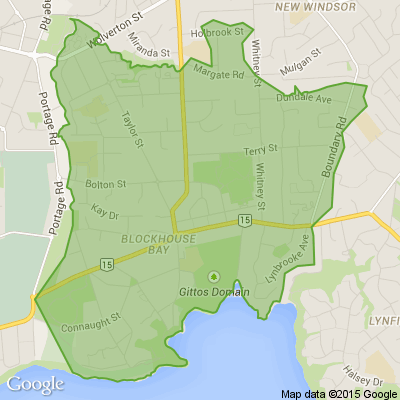The $200,000 mistake thousands of KiwiSavers made
Thousands of KiwiSaver members who switched their investments into less risky funds when Covid-19 first hit still haven't switched back - and it could cost them hundreds of thousands of dollars.
There was a surge in switching from growth funds to conservative funds in March 2020, when sharemarkets around the world wobbled.
Westpac said it processed 18,140 requests to switch in that time.
Markets soon recovered, but 27%of those KiwiSaver members never switched back to more growth-focused assets, Westpac said.
Another 17% took more than a year to switch back and 12% switched back in between six to 12 months.
If an investor is investing for a long time - such as for retirement - growth funds often deliver better outcomes because they tend to have higher returns, although they are more volatile. Shifting from a growth fund when markets are weak can mean locking in losses.
Morningstar research shows that, as a group, conservative KiwiSaver funds have returned an average 4.1% a year over 10 years, compared to 8.2% for growth funds and 9.1% for aggressive.
Westpac projected that someone with $25,000 in KiwiSaver who switched from a growth fund to a conservative fund on March 20, 2020, would end up with $387,938 in 2054.
But if they had left their money in a growth fund, they would have $615,423 - boosting their final outcome by more than $225,000.
If they had shifted in March 2020 and then moved back a year later, they would have $588,955 in 2054.
Even over a shorter term, the impact can be seen. Someone who shifted on March 20, 2020 and left their money in a conservative fund would have $120,880 in 2034. If they shifted back after a year, they could have $145,693 and if they had not shifted, and stayed in growth, they would have $156,472.
That assumes that person is earning the median wage, getting a 3% pay rise a year, and making 3% KiwiSaver contributions matched by a 3% employer contribution.
Westpac head of KiwiSaver Nigel Jackson said the number of people who had not switched back highlighted the "education gap" for New Zealanders in relation to long-term saving and retirement.
"Being in the right fund is really important and being in the wrong fund will cost you money in the long term."
Westpac has now launched a new high-growth fund that will have 100% growth assets and Jackson said it would be important that investors understood the possibility for volatility, as well as the potential returns available, so that they could stick with it and not switch out at the wrong moment.
"It's one of those challenges, you can tell people it's going to happen but it's still a challenge for them when it does happen. It's critical they understand the possibility is there so they have the context. If they don't have the right information, that's the point of highest risk when they can lock in unrealised losses by transferring to lower-risk funds and experience that loss at retirement."
Westpac NZ general manager of product, sustainability and marketing Sarah Hearn agreed long-term investors who were not in the right fund would probably short-change themselves at retirement.
"The Covid-19 experience and more recent market fluctuations should serve as a reminder to regularly think about your investment goals, whether you're saving for retirement or a first home deposit. That includes checking you're in the right type of fund for you and your stage in life," she said.
"Market volatility is normal and expected. Those of us who aren't nearing retirement will see our balances affected by more economic peaks and troughs before we get there."
The latest Financial Markets Authority annual KiwiSaver report showed growth funds now represent 46% of total funds under management, with $51.4 billion invested, and a total of 1.53 million investors. This is more than double the $24.5b in 2021.
=============================================
www.1news.co.nz...
=============================================
Have you got New Zealand's best shed? Show us and win!
Once again, Resene and NZ Gardener are on the hunt for New Zealand’s best shed! Send in the photos and the stories behind your man caves, she sheds, clever upcycled spaces, potty potting sheds and colourful chicken coops. The Resene Shed of the Year 2026 winner receives $1000 Resene ColorShop voucher, a $908 large Vegepod Starter Pack and a one-year subscription to NZ Gardener. To enter, tell us in writing (no more than 500 words) why your garden shed is New Zealand’s best, and send up to five high-quality photos by email to mailbox@nzgardener.co.nz. Entries close February 23, 2026.

Poll: 🤖 What skills do you think give a CV the ultimate edge in a robot-filled workplace?
The Reserve Bank has shared some pretty blunt advice: there’s no such thing as a “safe” job anymore 🛟😑
Robots are stepping into repetitive roles in factories, plants and warehouses. AI is taking care of the admin tasks that once filled many mid-level office jobs.
We want to know: As the world evolves, what skills do you think give a CV the ultimate edge in a robot-filled workplace?
Want to read more? The Press has you covered!

-
52.3% Human-centred experience and communication
-
15.2% Critical thinking
-
29.7% Resilience and adaptability
-
2.8% Other - I will share below!
The Gospel’s Relevance Today**
The Gospel, meaning ‘good news’, is the cornerstone of the message contained in the Bible’s first four books—Matthew, Mark, Luke, and John. While these records were written approximately 2,000 years ago, a natural question arises: why is this Gospel still relevant and vital for us today? This analysis seeks to explore what the Bible itself defines as the Gospel and to understand its enduring significance.
**Defining the Gospel: Core Biblical References**
The Gospel is not a vague concept; Scripture provides clear descriptions of its content and focus.
* **The Gospel of the Kingdom:** In Matthew 4:23, as Jesus begins his ministry, he is described as “preaching the gospel of the kingdom.” This immediately establishes that the good news is centrally about a kingdom—the Kingdom of God. His accompanying miracles served to validate the authority of this message.
* **The Gospel of Jesus Christ:** Mark 1:1 opens with, “The beginning of the gospel of Jesus Christ, the Son of God.” Here, “Christ” is a title meaning ‘anointed one’. Thus, the good news is intrinsically about Jesus: his identity as the Anointed One and his unique status as the Son of God.
* **The Gospel of God’s Grace:** In Acts 20:24, the Apostle Paul speaks of his mission to “testify the gospel of the grace of God.” Grace signifies an undeserved gift. This reveals that the Gospel involves a gift from God, offered not because it is merited, but out of His benevolence.
* **The Gospel of Salvation and Peace:** Romans 1:16 declares the Gospel is “the power of God to salvation for everyone who believes,” breaking down barriers between Jew and Gentile (Greek). Furthermore, Romans 10:15 calls it the “gospel of peace,” pointing to a future state of peace brought about by this message.
* **The Gospel Summarised:** 1 Corinthians 15:1-4 provides a foundational summary. Paul reminds believers of the gospel he preached, “by which also you are saved.” He then states its core historical facts: “that Christ died for our sins according to the Scriptures, and that He was buried, and that He rose again the third day according to the Scriptures.” The Gospel is therefore rooted in the sacrificial death and resurrection of Jesus.
In synthesis, the Gospel is the good news of **salvation and future peace in the Kingdom of God**, made possible by **the grace of God** and **the obedient sacrifice of His Son, Jesus Christ**, and offered to all who believe.
**Old Testament Foundations: The Gospel Preached to Abraham**
A crucial question is whether the Gospel is confined to the New Testament. Scripture shows its foundations were laid much earlier. Galatians 3:8 states explicitly that “the Scripture, foreseeing that God would justify the Gentiles by faith, preached the gospel to Abraham beforehand, saying, ‘In you all the nations shall be blessed.’”
This reference points back to Genesis 12:1-3, where God made profound promises to Abraham: to make him a great nation, to bless those who blessed him, and that “in you all the families of the earth shall be blessed.” These promises—later reaffirmed to Isaac and Jacob—form the bedrock of the Gospel hope. The good news of salvation through Christ is the fulfillment of how **all nations** would be blessed through Abraham’s “seed.”
**The Gospel’s Personal Relevance: Good News for You Today**
How does this ancient message become “good news for you” today? The application is clearly outlined in Galatians 3.
* **Access through Faith in Christ:** Galatians 3:26 declares, “For you are all sons of God through faith in Christ Jesus.” The promise made to Abraham is now extended to anyone with faith in Jesus.
* **The Role of Baptism:** Verse 27 explains, “For as many of you as were baptized into Christ have put on Christ.” Baptism is the God-appointed act of faith that identifies a believer with Christ’s death and resurrection.
* **Unity and Inheritance:** Verses 28-29 reveal the glorious outcome: “There is neither Jew nor Greek, there is neither slave nor free, there is neither male nor female; for you are all one in Christ Jesus. And if you are Christ’s, then you are Abraham’s seed, and heirs according to the promise.” Through the Gospel, all barriers are removed; believers become spiritual descendants of Abraham and heirs to the promises of the Kingdom.
This Gospel was once a mystery hidden in God’s purpose (Ephesians 3:3-9). Now, it has been revealed: the unsearchable riches of Christ, offering salvation to all who heed the call, believe the message, and are baptised into him.
**Conclusion: An Enduring and Open Invitation**
The Gospel is far more than a historical account; it is the living, powerful good news of God’s plan for salvation. It is rooted in promises to Abraham, accomplished through the death and resurrection of Jesus Christ, and open to all people without distinction. It offers a tangible hope—the hope of resurrection, peace, and an inheritance in the coming Kingdom of God. This is why the Gospel remains profoundly relevant. It is an invitation to listen, believe, and stand firm in this hope, linking our lives today to the eternal purpose of God.








 Loading…
Loading…